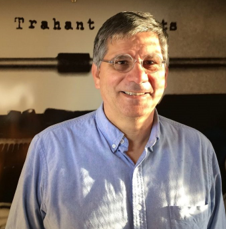In September, at least 73 Native people were reported missing in North and South Dakota — 65 are children
Tribes social clubs or governments? ‘Stop Disenrollment’ returns via social media
Mark Trahant
Trahant Reports

This year’s “Stop Disenrollment” campaign launches again on Feb. 8 and is led by Alaska Native actor Irene Bedard. (News release photo)
I was at an event in Seattle recently and listed to Slade Gorton talk about the future of the Republican party in Washington at the Crosscut Festival in Seattle last week. Washington state is changing and the GOP runs the risk of being irrelevant (as is now the case in California elections). And, Washington, like California, has a top two primary. So it’s a challenge for Republicans to win a spot in the general election. In the last Senate election, for example, the “top two” finalists were both Democrats.
Gorton, who just had his 90th birthday, was once considered a moderate in Republican circles. That’s no longer the case. It’s true he is not a “loyal” Trump supporter. Then that’s not an easy species to find in Washington state. But he does support the GOP congressional agenda. So moderate he is not.
Of course Gorton did not talk about American Indian or Alaska Native issues. Even though that’s what we in Indian Country remember. Actually it’s too bad for Republicans. The party is shrinking, in part, because it does not recognize the changing nature of the country’s demographics. Then that’s been true for a long time. I remember talking to a former GOP party leader, Gummy Johnson, more than twenty years ago who wanted to position his party as a supporter of Treaty Rights and tribal governments. The Gorton wing of the party would never have let that happen.
Gorton (and his ally on the Supreme Court, the late William Rehnquist) had a nuanced view of tribal governments. These two men used their legislative and judicial powers to try and undercut federal Indian law and treat tribes as social clubs. Tribal membership was not citizenship but a special privilege. So tribal authority, the power of government, could only be applied to tribal members (and even that was subject to any limitations set by Congress). The legal theory for this nonsense was the implied divestiture doctrine, the secret but steady erosion of tribal governments.
Sen. Gorton has moved on to other issues. He’s an expert on national security, and, as I learned the other night, on rebuilding the Republican brand. (Or not. Because he argues there is an ebb and flow and Republican ideas will come back again in Washington with major change.)
I was thinking of Slade Gorton’s ideology in the context of the Stop Disenrollment campaign that will be posted across social media on Feb. 8. It’s being led this year by Alaska Native actor Irene Bedard. “The movement is poised to raise indigenous social consciousness again this year — in what might be its final year given the growing sense that disenrollment is declining nationally,” said a news release. “Prominent Native Americans like author Sherman Alexie, former U.S. Vice Presidential candidate Winona LaDuke, rapper-actor-entrepreneur Litefoot, film director Chris Eyre, fashion designer Bethany Yellowtail, and Olympic Gold Medalist Billy Mills headlined the 2016- and 2017-campaigns.”
What does Slade Gorton have to do with disenrollment? It’s an extension of the idea that tribes are social clubs and that membership is exclusive. That’s a different narrative than a government with citizens. Great nations grow. Great nations want all the talent that can build a better society. (Hint: This idea has applications to the immigration debate, too.) Great nations don’t kick out their relations.
To me, tribal citizenship is the key. Thumb through history and some of Indian Country’s greatest leaders: Washakie, D’arcy McNickle, and many, many more could have been on the wrong side of history had there been a narrow debate about disenrollment and membership.
Are tribes exclusive clubs? No. The answer is always the framework of government.
Mark Trahant is an independent journalist and a member of The Shoshone-Bannock Tribes. On Twitter @TrahantReports

External
MMIW Search & Hope Alliance coordinator discusses upcoming volunteer training and misconceptions about the role
Chef Nephi and UTTC students celebrate food as medicine
By blending tribal regalia with holiday tradition, Indigenous veterans in Oregon are creating a safe, inclusive space where children see themselves in the magic of Christmas.
Thousands of Natives expected to camp, bring horses, tell stories about Custer’s defeat






